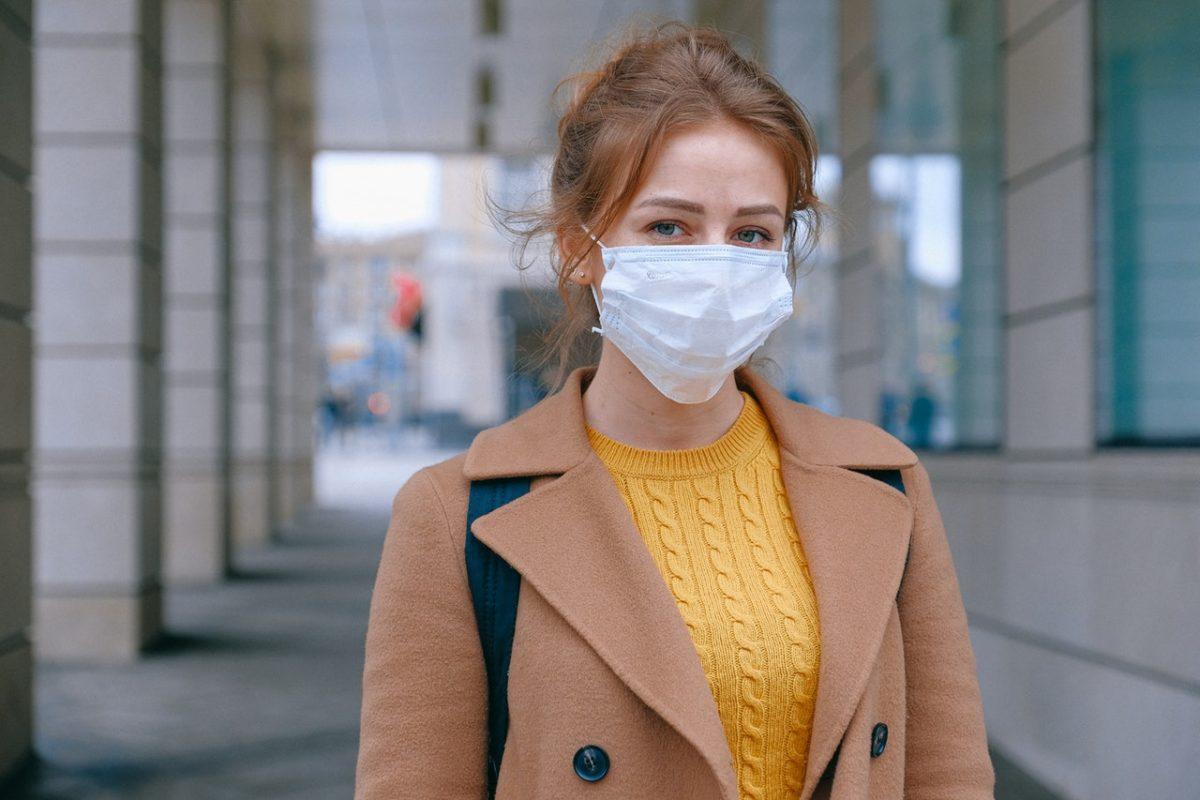The SARS-Cov-2 coronavirus pandemic is a significant challenge to our mental health. Tomasz Gondek, psychiatrist, doctor of medical sciences, member of the Education Section of the World Psychiatric Association (WPA), European Psychiatric Association (EPA) and the Council of Young Experts talk about how to survive this period mentally, where to seek help, how to treat quarantine and help relatives at the Patient Ombudsman.
Does coronavirus pandemic affect the mental health of Poles?
We found ourselves in a situation where there was a real health threat. Suddenly there was a new stress stimulus in our life that we didn’t even think about before, and which now overlaps with our worries and problems, additionally disrupting the daily rhythm of each of us. We have different abilities to adapt to this new reality, and many of us have difficulties in dealing with it. This raises our anxiety and concerns that the coronavirus threat is still out of our control, we do not yet have the vaccine or causal treatment, and the health care system is currently overloaded, which makes it more difficult to get quick help.
We cannot predict how long the epidemiological threat will persist. Always, when we are subjected to chronic psychological stress, the risk of occurrence or exacerbation of symptoms of mental disorders, including mood and anxiety disorders, as well as other ailments, increases significantly. Therefore, a pandemic, which is a source of long-term stress, has a great impact on our mental health right now and will probably have it for a long time after it expires.
Pandemic times can be particularly difficult for people with anxiety disorders. How to deal with this situation and not give in to panic?
Knowledge helps us to deal with fear better. From the media, we learn mainly about situations that cause the greatest social anxiety, but knowledge can be helpful. The vast majority of infected people pass the infection mildly and do not develop serious complications. Education about infection symptoms and guidelines for contacting healthcare facilities allows us to respond efficiently in the event of ailments with us or our relatives.
At the same time, knowledge of how the virus spreads, proper hygiene, and knowledge of current recommendations of sanitary and epidemiological services help reduce the risk of infection. In case of doubt, we can contact the local sanitary services by phone or ask for information through the free helpline of the Patient Rights Ombudsman and the National Health Fund. Many psychologists, psychotherapists, and psychiatrists will also be able to provide psychological support via telephone or messengers, which will help alleviate anxiety during this difficult time.
How to tame quarantine? What positive aspects does it bring?
For each of us, quarantine means a complete change in everyday functioning, it is associated with significant restrictions, and it can, therefore, arouse various negative emotions. Most of us, however, understand that this is a necessary measure to limit the spread of infection and protect other people from it, and therefore adhere to the restrictions.
The fact that the quarantine is temporary and limited in time, we know it will end, helps us accept this state. It can also be a moment of breath from the momentum of everyday life and give us time to adapt to the rapidly changing conditions in our environment.
Health care is based to a large extent on teleports. What advice would you give to people who permanently use the help of a psychiatrist or psychologist or feel the need to seek specialist help? Use telemedicine or postpone appointments?
A pandemic has changed many aspects of our lives in a very short time, including the way we work. In professions where this is possible, many of us decide on the remote work mode. These changes have taken place particularly dynamically in medicine and doctors, even those who have been skeptical about new technologies, are now opening up the possibility of remote consultations for patients today.
However, it is worth remembering that the availability of technical capabilities does not necessarily mean that such consultation will be equivalent to a personal consultation in a doctor’s office.
We can efficiently collect a medical history over the phone or communicator, but for psychiatrists, it is also extremely important to examine the current mental state, and often the details noted during the very careful observation of the patient may be important, which will not be possible during a telephone consultation, and even with the help of a video messenger will also be somewhat limited.
For obvious reasons, a physical examination is not available during such consultation, and many symptoms of mental disorders may have their origin in internal medicine or neurological diseases, we also often have the comorbidity of mental and somatic disorders. Also, when using certain medications, we should routinely check the patient’s heart rate, blood pressure, or nystagmus.
Therefore, if we plan to report for the first visit to a psychiatrist or psychologist to make an accurate diagnosis, a personal visit will always be better, due to the aforementioned restrictions during distance consultations.
However, under current conditions, when in an epidemic we should stay at home, we need to consider whether the risk of exposure to potential viruses after leaving the house or whether the risk of less accurate diagnostics during remote consultation will be more important.
We also need to assess whether faster consultation will be more important, or whether it will be safer to wait until the health hazard associated with the pandemic has resolved. Unfortunately, these are often situations where there is no good choice. Of course, we only have any choice if the problems we plan to see a doctor for are protracted, and consultation can be postponed, or when we are still in permanent treatment, and we feel good because then the limitations of teleconsultation will not matter much
However, there are urgent situations in psychiatry that require quick and accurate diagnosis, in which contact with a psychiatrist cannot be delayed. If in doubt, it is best to contact your doctor in advance and determine what form of consultation will be the best solution. If a quarantined person needs to be consulted, the selection will be limited to remote consultation.
You regularly consult people in mental crises, also in recent days. What are the problems associated with the current situation for patients?
As doctors, we cannot leave our patients unattended .and we try to look for solutions on how to provide safe support and treatment at present. During a pandemic, we feel more anxious, and we have concerns about our and our loved ones’ health, especially those of mature age and suffering from other diseases, who are particularly exposed to serious health complications.
The economic situation becomes very difficult, and there are fears of a job when we do not know how long the threat will last. This burden means that people who previously had mental health problems and were feeling well often now report again due to a decrease in mood or worsening symptoms of slow-flowing anxiety, panic anxiety, insomnia, or the occurrence of intrusive thoughts and activities.
The Psychiatric Association recommends keeping an attitude of understanding and support towards infected people. What exactly could it manifest?
People suffering from various diseases are often subjected to stigmatization and social discrimination, which means that they are perceived and treated negatively, worse than other people, due to their socially undesirable trait – in this case, the disease. Similarly to persons with mental disorders, stigmatization is more often experienced by persons diagnosed with an infectious disease. However, we have an epidemic in Poland, and each of us or our loved ones may become a coronavirus infected person tomorrow – it is estimated that ultimately the majority of our society will have contact with the coronavirus that causes COVID-19.
It is worth remembering, therefore, to treat people who have fallen ill in a way that would not cause us unpleasantness. Therefore, we should avoid expressing negative emotional qualities or judging other people. Many of the infected are also people who, risking their health, have been treating patients with confirmed infection. For each of these people and their families, this is an extremely difficult situation, and they need help and mental support.
Sometimes a short phone conversation can help or help with small matters when a person in quarantine cannot leave the house. Let’s try not to ignore, especially situations when the other person asks us for a moment of conversation. For each of these people and their families, this is an extremely difficult situation, and they need help and mental support.
Sometimes, even a short phone call can help a lot, or help with small matters when a person in quarantine cannot leave the house. Let’s try not to ignore, especially situations when the other person asks us for a moment of conversation. For each of these people and their families, this is an extremely difficult situation, and they need help and mental support. Sometimes, even a short phone call can help a lot, or help with small matters when a person in quarantine cannot leave the house. Let’s try not to ignore, especially situations when the other person asks us for a moment of conversation.
Infographic



